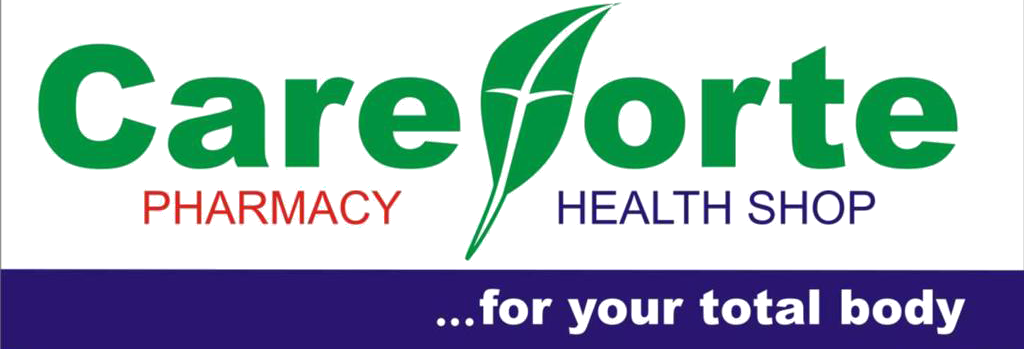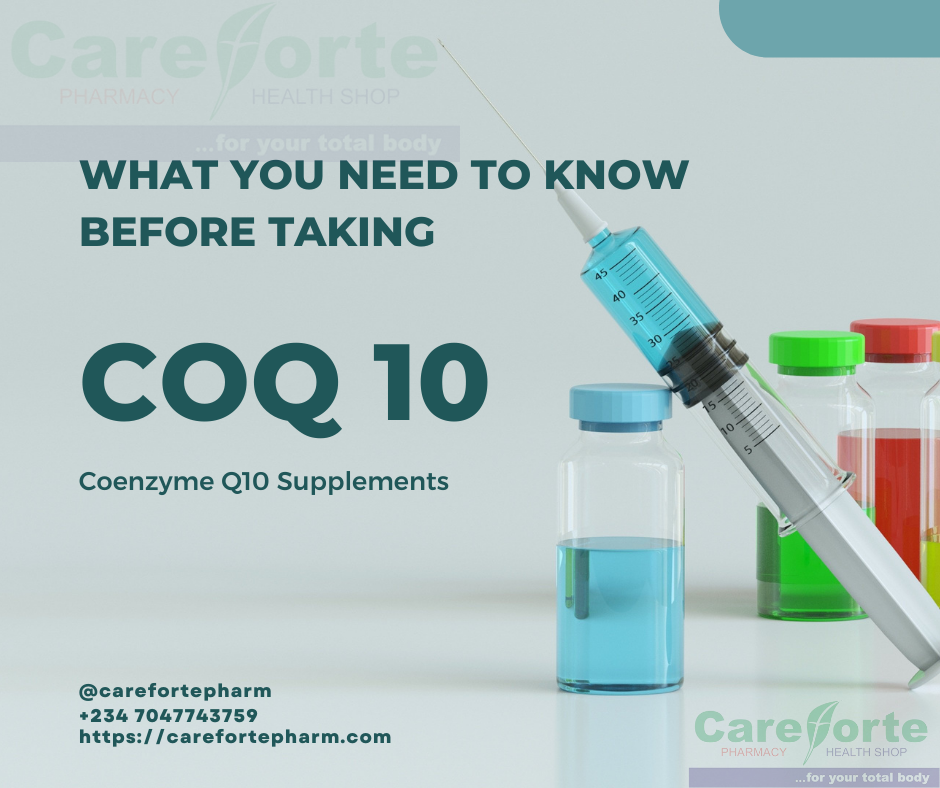Coenzyme Q10, commonly known as CoQ10, is a naturally occurring compound found in every cell of the human body. It plays a vital role in the production of energy within cells and is particularly important for the functioning of organs with high energy demands, such as the heart, liver, and kidneys. CoQ10 also functions as an antioxidant, protecting cells from damage caused by free radicals.
One of the most common forms of CoQ10 supplements is CoQ10 100 mg. This dosage is considered a standard and is widely available in health food stores, pharmacies, and online retailers. In this article, we will explore the benefits, side effects, and recommended dosage of CoQ10 100 mg.
Benefits of CoQ 10 Supplements
Improved Heart Health
CoQ10 is essential for the proper functioning of the heart muscle. Research has shown that CoQ10 supplementation may help reduce the risk of cardiovascular diseases such as heart failure and high blood pressure.
Increased Energy
CoQ10 is involved in the production of ATP, the molecule that provides energy to cells. Supplementing with CoQ10 may help boost energy levels and reduce fatigue.
Antioxidant Properties
CoQ10 acts as a powerful antioxidant, protecting cells from damage caused by free radicals. This may help prevent the development of chronic diseases, such as cancer and Alzheimer’s disease.
Improved Excercise Performance
CoQ10 supplementation may improve exercise performance by increasing energy production and reducing muscle damage and inflammation.
From our store: CoQ10 Supplements
-
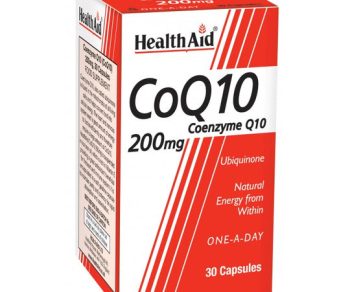 HEALTHAID CoQ10 200MG (COENZYME Q10) X30 CAPSULES₦28,000.00
HEALTHAID CoQ10 200MG (COENZYME Q10) X30 CAPSULES₦28,000.00 -
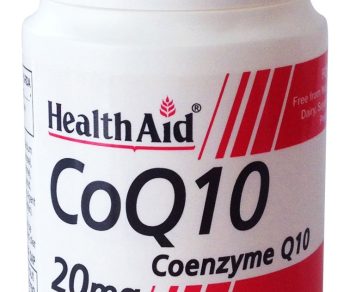 HEALTHAID CoQ10 COENZYME Q10 20MG X30 TABLETS₦6,280.00
HEALTHAID CoQ10 COENZYME Q10 20MG X30 TABLETS₦6,280.00 -
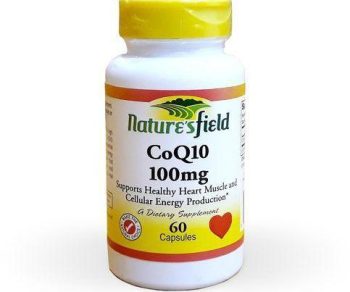 NATURE’S FIELD CoQ10 100 MG 60 CAPS₦27,200.00
NATURE’S FIELD CoQ10 100 MG 60 CAPS₦27,200.00 -
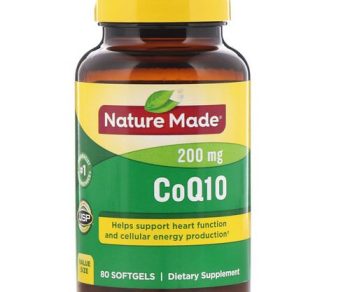 NATURE MADE CoQ10 400 MG X40 SOFTGELS₦24,500.00
NATURE MADE CoQ10 400 MG X40 SOFTGELS₦24,500.00 -
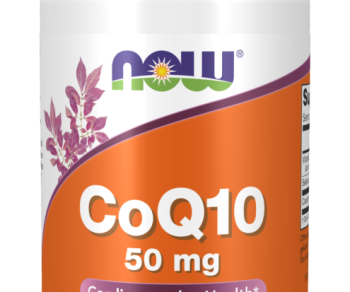 CoQ10 50 MG SOFTGELS CARDIOVASCULAR HEALTH*₦17,900.00
CoQ10 50 MG SOFTGELS CARDIOVASCULAR HEALTH*₦17,900.00 -
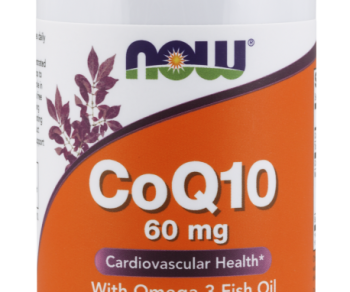 CoQ10 60 MG WITH OMEGA-3 FISH OIL SOFTGELS₦13,200.00
CoQ10 60 MG WITH OMEGA-3 FISH OIL SOFTGELS₦13,200.00 -
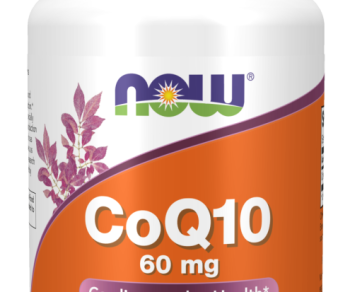 CoQ10 60 MG VEG CAPSULES CARDIOVASCULAR HEALTH*₦5,910.00
CoQ10 60 MG VEG CAPSULES CARDIOVASCULAR HEALTH*₦5,910.00 -
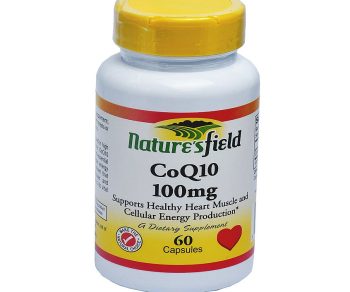 NATURE’S FIELD CoQ10 200MG 30 CAPS₦30,500.00
NATURE’S FIELD CoQ10 200MG 30 CAPS₦30,500.00 -
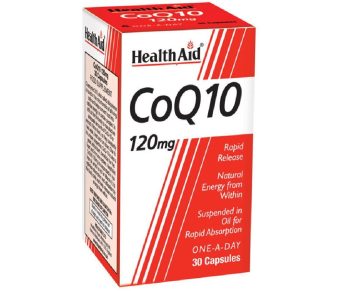 HEALTHAID CoQ10 UBIQUINONE 120MG 30 CAPS₦14,000.00
HEALTHAID CoQ10 UBIQUINONE 120MG 30 CAPS₦14,000.00
General Guidelines on Side Effects
CoQ10 supplements are generally considered safe and well-tolerated, with few reported side effects. However, some individuals may experience mild side effects from taking CoQ10 supplements, particularly at higher doses.
The most common side effects of CoQ10 supplementation include gastrointestinal symptoms, such as nausea, vomiting, and diarrhea. These symptoms are usually mild and may be alleviated by taking CoQ10 supplements with food or reducing the dosage.
In rare cases, individuals may experience allergic reactions to CoQ10 supplements, which can cause hives, swelling, and difficulty breathing. If you experience any of these symptoms, you should stop taking CoQ10 supplements immediately and seek medical attention.
CoQ10 supplements may also interact with certain medications, particularly blood-thinning medications such as warfarin, and can reduce their effectiveness. Individuals taking these medications should consult with their healthcare provider before starting a CoQ10 supplement regimen.
It is also important to note that high doses of CoQ10 may interfere with insulin and blood sugar control in individuals with diabetes. Individuals with diabetes should consult with their healthcare provider before starting a CoQ10 supplement regimen and closely monitor their blood sugar levels.
Overall, CoQ10 supplements are generally safe and well-tolerated when taken at recommended doses. However, individuals should be aware of potential side effects and consult with their healthcare provider before starting a CoQ10 supplement regimen, particularly if they have any underlying health conditions or are taking any medications.
CoQ 10 Supplements Recommended Dosage by Health Condition
Heart Disease
CoQ10 plays a crucial role in maintaining heart health by improving energy production in heart cells and reducing oxidative stress. For individuals with heart disease, a higher dosage of CoQ10 supplement may be necessary to achieve therapeutic benefits. A daily dose of 200-600 mg of CoQ10 supplements may help improve heart function, reduce the risk of cardiovascular events, and improve exercise capacity. However, the optimal dosage may vary based on the severity of the heart condition, and it is important to consult with a healthcare provider before starting a CoQ10 supplement regimen.
Migraines
CoQ10 may help reduce the frequency and severity of migraines by improving mitochondrial function and reducing inflammation. A daily dose of 300 mg of CoQ10 may be beneficial for individuals suffering from migraines, and it may take several months to see the full effects. CoQ10 may also be combined with other supplements, such as magnesium and riboflavin, to further improve migraine symptoms.
Parkinson’s Disease
Parkinson’s disease is characterized by the loss of dopamine-producing neurons in the brain, leading to motor symptoms such as tremors and stiffness. CoQ10 supplements may help slow the progression of Parkinson’s disease by improving mitochondrial function and reducing oxidative stress. Some studies have shown that a daily dose of 1,200 mg of CoQ10 supplements may help improve motor symptoms and quality of life in individuals with Parkinson’s disease. However, further research is needed to confirm these findings.
Aging
As we age, our natural production of CoQ10 decreases, leading to a decline in energy production and an increased risk of chronic diseases. CoQ10 supplementation may help support overall health and vitality in older adults by improving energy production and reducing oxidative stress. A daily dose of 100-200 mg of CoQ10 supplements may be beneficial for older adults, and it may help improve cognitive function, reduce inflammation, and improve exercise capacity.
Fertility
CoQ10 may improve fertility in both men and women by improving mitochondrial function and reducing oxidative stress. A daily dose of 200-600 mg of CoQ10 may be beneficial for individuals seeking to improve their fertility, and it may help improve sperm quality, egg quality, and embryo quality. However, the optimal dosage may vary based on individual factors, and it is important to consult with a healthcare provider before starting a CoQ10 supplement regimen.
Children
CoQ10 supplements are generally considered safe for children, but dosages should be adjusted based on age and weight. For children under 12, a daily dose of 30-100 mg is typically recommended. CoQ10 may help support overall health and energy production in children, and it may be beneficial for children with certain health conditions, such as mitochondrial disorders.
Athletes
CoQ10 supplementation may help improve exercise performance and reduce muscle damage and inflammation. Athletes may benefit from a daily dose of 200-400 mg of CoQ10, and it may help improve endurance, reduce muscle soreness, and improve recovery time. However, the optimal dosage may vary based on individual factors, such as the type and intensity of exercise, and it is important to consult with a healthcare provider before starting a CoQ10 supplement regimen.
Statin Use
Statins are a type of medication used to lower cholesterol levels, but they can also reduce the body’s production of CoQ10. CoQ10 supplementation may help reduce the risk of statin-related side effects, such as muscle pain and weakness. A daily dose of 100-200 mg of CoQ10 may be beneficial for individuals taking statins, and it may help improve energy levels and reduce muscle damage.
Cancer
CoQ10 may have anticancer effects by improving mitochondrial function and reducing oxidative stress. Some studies have shown that CoQ10 supplementation may help improve survival rates and reduce the side effects of cancer treatment. However, further research is needed to confirm these findings, and it is important to consult with a healthcare provider before starting a CoQ10 supplement regimen for cancer.
Diabetes
CoQ10 may help improve glucose control and reduce the risk of complications in individuals with diabetes. A daily dose of 100-200 mg of CoQ10 may be beneficial for individuals with diabetes, and it may help improve insulin sensitivity and reduce inflammation. However, the optimal dosage may vary based on individual factors, such as the severity of diabetes, and it is important to consult with a healthcare provider before starting a CoQ10 supplement regimen.
High Blood Pressure
CoQ10 may help lower blood pressure by improving endothelial function and reducing oxidative stress. A daily dose of 100-200 mg of CoQ10 may be beneficial for individuals with high blood pressure, and it may help reduce systolic blood pressure by 10-17 mmHg. However, the optimal dosage may vary based on individual factors, such as the severity of high blood pressure, and it is important to consult with a healthcare provider before starting a CoQ10 supplement regimen.
Pregnancy and Breastfeeding
CoQ10 supplements are generally considered safe during pregnancy and breastfeeding, but dosages should be adjusted based on individual factors. A daily dose of 30-100 mg of CoQ10 may be beneficial for pregnant and breastfeeding women, and it may help improve energy levels and reduce oxidative stress. However, it is important to consult with a healthcare provider before starting a CoQ10 supplement regimen during pregnancy or breastfeeding.
CoQ10 is a powerful antioxidant that plays a crucial role in maintaining energy production and reducing oxidative stress. The optimal dosage of CoQ10 may vary based on individual factors, such as age, health condition, and medication use. It is important to consult with a healthcare provider before starting a CoQ10 supplement regimen and to monitor for any potential side effects or interactions with other medications or supplements.
To conclude
CoQ10 100 mg is a widely available and popular supplement that may offer numerous health benefits, including improved heart health, increased energy, and antioxidant properties. While side effects are rare, it is important to talk to your healthcare provider before taking CoQ10, especially if you are currently taking any medications. With the right dosage and proper guidance, CoQ10 100 mg can be a valuable addition to your health and wellness routine.
